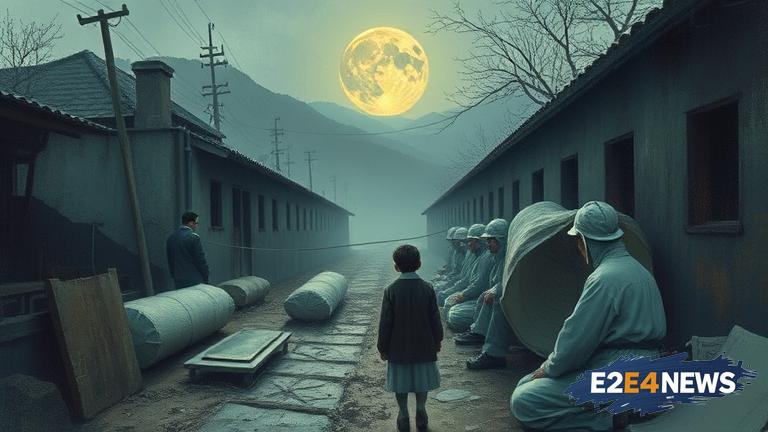The atomic bombing of Hiroshima on August 6, 1945, is a well-documented historical event that resulted in the loss of thousands of lives. However, the stories of Korean survivors have been largely overlooked and forgotten. Many Koreans were forcibly brought to Japan during World War II, where they were subjected to forced labor, torture, and other forms of mistreatment. When the bomb was dropped, these individuals were among the most vulnerable, with many suffering severe injuries and disfigurement. Despite their experiences, Korean survivors have been denied recognition and compensation, with many struggling to access basic medical care and social services. The Japanese government has been criticized for its handling of the issue, with many arguing that it has failed to provide adequate support and recognition to Korean survivors. In recent years, there has been a growing movement to raise awareness about the experiences of Korean survivors, with many advocating for greater recognition and compensation. The Korean government has also been working to support survivors, with efforts to provide medical care, financial assistance, and other forms of support. However, much work remains to be done, with many survivors still struggling to access basic services and support. The legacy of the Hiroshima bomb continues to be felt today, with many survivors still suffering from physical and emotional trauma. The international community has a responsibility to recognize and support these individuals, providing them with the care and compensation they deserve. The story of Korean survivors serves as a reminder of the devastating consequences of war and the importance of promoting peace and reconciliation. It also highlights the need for greater awareness and understanding of the experiences of marginalized communities, including those who have been affected by conflict and trauma. In addition to providing support and recognition to survivors, it is also important to work towards preventing similar tragedies from occurring in the future. This can be achieved through education, advocacy, and diplomacy, as well as efforts to promote peace and reconciliation. The Korean survivors of the Hiroshima bomb are a testament to the resilience and strength of the human spirit, and their stories serve as a powerful reminder of the importance of promoting peace and justice. Despite the challenges they have faced, many survivors continue to advocate for their rights and work towards creating a more just and equitable society. Their experiences also highlight the need for greater international cooperation and solidarity, particularly in the face of global challenges such as nuclear proliferation and climate change. The story of Korean survivors is a complex and multifaceted one, involving issues of history, politics, and social justice. It is a reminder that the consequences of war and trauma can be long-lasting and far-reaching, affecting not only individuals but also communities and societies as a whole. Furthermore, the experiences of Korean survivors serve as a warning about the dangers of nationalism and xenophobia, highlighting the need for greater understanding and empathy between different cultures and communities. The legacy of the Hiroshima bomb also serves as a reminder of the importance of promoting nuclear disarmament and non-proliferation, as well as efforts to prevent the spread of nuclear weapons. In conclusion, the story of Korean survivors of the Hiroshima bomb is one that deserves greater recognition and attention, highlighting the need for greater awareness and understanding of the experiences of marginalized communities. It is a powerful reminder of the importance of promoting peace, justice, and human rights, and the need for greater international cooperation and solidarity in the face of global challenges.





